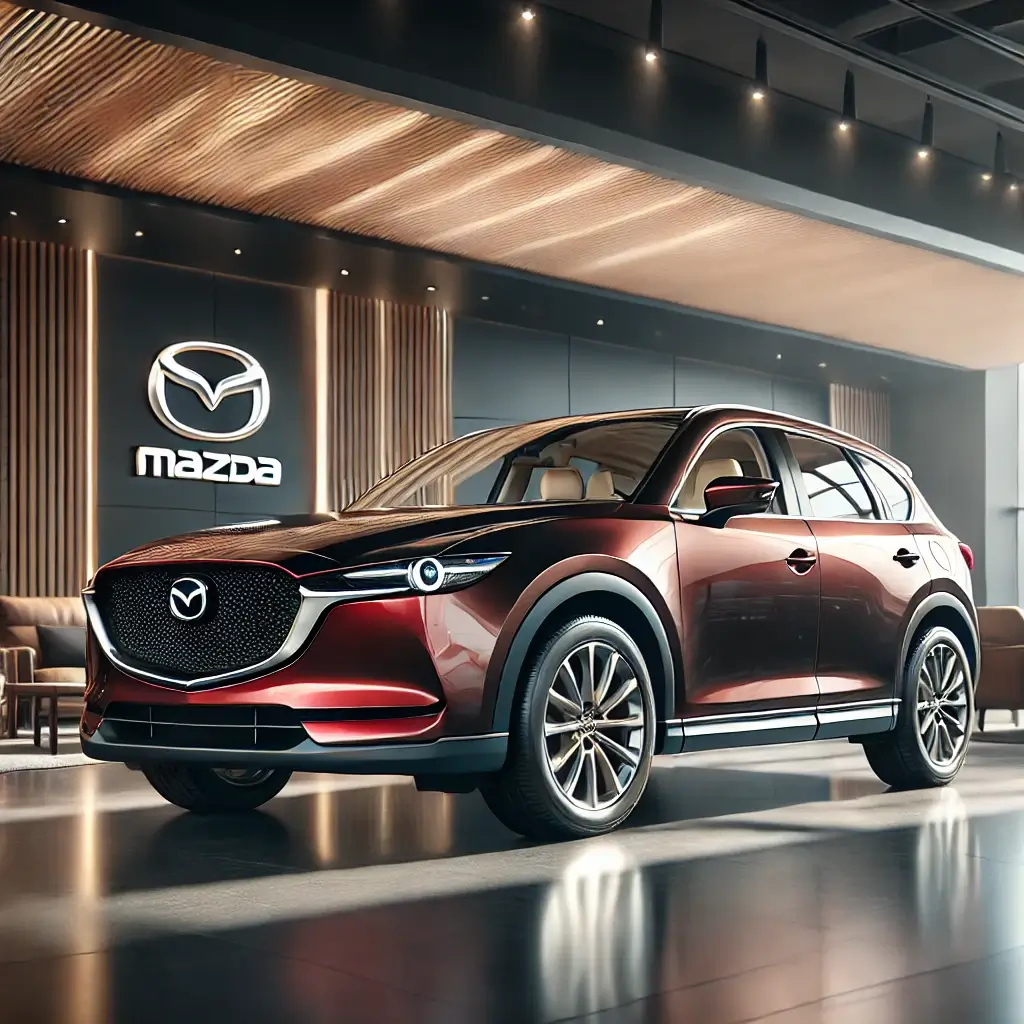The Ultimate Guide: How to Choose a Luxury Car That’s Perfect for You
Choosing a luxury car is more than a transaction; it’s a statement. It’s an investment in craftsmanship, performance, and a superior driving experience. But with a dizzying array of incredible options from legendary German sedans to high-tech American EVs and elegant Japanese cruisers, how do you navigate the market to find the one that truly fits your lifestyle? This isn’t about picking the most expensive car—it’s about finding the right car. Let’s buckle up and explore the essential steps to making a smart, satisfying luxury vehicle purchase.

Step 1: Define Your Personal Definition of Luxury
Before you even look at a single car, the most crucial step is introspection. The term “luxury” is not one-size-fits-all. What does it mean to *you*? Your answer will be the compass that guides your entire search.
Is it about Performance and Thrill?
For some, luxury is the adrenaline rush of a powerful engine. It’s the responsive handling on a winding road, the satisfying roar of an exhaust, and the sheer G-force of rapid acceleration. If this is you, your search will naturally gravitate towards brands known for their performance heritage, like Porsche, BMW’s M division, or Mercedes-AMG. You’ll be comparing horsepower, torque, 0-60 times, and suspension systems.
Is it about Comfort and Serenity?
Perhaps your idea of luxury is a sanctuary from the outside world. A cabin so quiet you can hear your own heartbeat, seats that massage you on your commute, and a suspension that makes potholes disappear. If you prioritize a serene, isolated ride, you’ll want to look at vehicles like the Mercedes-Benz S-Class, Lexus LS, or Lincoln Navigator. Here, you’ll focus on noise insulation, ride quality, seat comfort, and premium audio systems.
Is it about Cutting-Edge Technology?
For the tech-savvy buyer, luxury is defined by the latest and greatest gadgets. This means massive infotainment screens, intuitive user interfaces, advanced driver-assistance systems (like Tesla’s Autopilot), and seamless smartphone integration. Brands like Tesla, Lucid, and Audi are often at the forefront here. You’ll be comparing screen resolution, software responsiveness, and the sophistication of the autonomous driving features.
Is it about Prestige and Heritage?
For others, luxury is about the badge. It’s the history, the legacy, and the statement that comes with owning a vehicle from an iconic brand like Rolls-Royce, Bentley, or even a classic Cadillac. This is about buying into a story and a lineage of excellence. The feeling of arriving in a car with an iconic hood ornament can be a powerful component of the ownership experience.
Step 2: Set a Realistic Budget (Beyond the Sticker Price)
This might seem obvious, but a luxury car budget is more complex than a standard one. The manufacturer’s suggested retail price (MSRP) is just the beginning. You must account for the total cost of ownership.
Expert Financial Tip: Don’t just budget for the monthly payment. Calculate the “Big Five” costs of ownership:
- Insurance: Premiums for luxury cars are significantly higher due to their high repair costs and value. Get quotes before you buy.
- Fuel: High-performance engines often require premium fuel and have lower MPG ratings. For EVs, consider the cost of home charger installation and electricity rates.
- Maintenance & Repairs: Routine maintenance like oil changes, tire rotations, and brake jobs costs more at a luxury dealership. Out-of-warranty repairs can be astronomically expensive.
- Depreciation: Most luxury cars depreciate faster than non-luxury vehicles. Research the projected resale value of the models you’re considering.
- Taxes & Fees: Sales tax on a $90,000 vehicle is substantial, and some states have additional “luxury taxes” on high-value cars.
A car that seems affordable on a monthly payment plan can quickly become a financial burden if you’re not prepared for a $2,000 bill for a new set of tires or a $1,500 service appointment.
Step 3: The Crucial Test Drive Phase
You can read a hundred reviews and watch a thousand videos, but nothing replaces seat time. A test drive for a luxury car should be more in-depth than a quick spin around the block.
- Drive Your Commute: If possible, take the car on your daily route. How does it handle the traffic you sit in? Does it absorb the bumps on that one bad stretch of road? Is it easy to park in your usual spots?
- Test the Tech: Don’t just look at the big screen—use it. Try to pair your phone, use the navigation system, and adjust the climate controls. Is the system intuitive or frustrating? Can you do it without taking your eyes off the road?
- Live With It: Ask the dealership for an extended test drive, perhaps for a full afternoon or even 24 hours. See if the car seats fit, if your golf clubs fit in the trunk, and if it fits in your garage.
- Compare Back-to-Back: If you’re torn between two or three models, try to test drive them on the same day. This will make the differences in ride, handling, and interior quality much more apparent.

Step 4: Research Brands, Not Just Models
When you buy a luxury car, you’re also buying into a brand’s ecosystem and philosophy. Understanding this is key.
Take a brand like Lexus, for example. As the luxury division of Toyota, it is renowned for its impeccable reliability, build quality, and customer service. It’s a smart, sensible choice in the luxury space. Similarly, Acura is known for delivering performance and technology with the reliability that its parent company is famous for. If you’re wondering about Honda’s high-end line, asking “what is the luxury brand of Honda” leads you directly to Acura.
On the other hand, a brand like Alfa Romeo is known for its passionate Italian design and thrilling driving dynamics, but historically, it has not had the same reputation for reliability. An Alfa owner values the soul and emotion of the car above all else. Then you have newcomers challenging the establishment. A question like “is Genesis a luxury car” is a perfect example. Genesis, Hyundai’s luxury marque, is aggressively competing with the Germans by offering bold design, premium features, and a fantastic warranty at a competitive price point.
Step 5: Equip for Excellence – Maintaining Your Investment
Owning a luxury vehicle means caring for it with products that match its quality. Using premium care accessories not only keeps your car looking pristine but also enhances the ownership experience and protects its value. Here are some top-tier automotive care products available on Amazon that are perfect for a new luxury car owner.

Chemical Guys HOL148 Arsenal Builder Wash Kit
Start with the right tools. This comprehensive 16-piece kit includes everything from a foam cannon and bucket to high-quality soaps, waxes, and microfiber towels to give your car a professional-level detail at home.
View on Amazon
Carfidant Black Car Scratch Remover
Minor scratches are inevitable, but they don’t have to be permanent. This ultimate scratch and swirl remover is specially formulated for black and dark-colored paints, helping you safely polish away imperfections and restore that showroom shine.
View on Amazon
THISWORX Car Vacuum Cleaner Pro
A luxury interior deserves to be spotless. This powerful, compact handheld vacuum comes with multiple attachments to easily clean every nook and cranny of your car’s cabin, from the floor mats to the tight spaces between the seats.
View on AmazonConclusion: The Final Decision is Emotional, Backed by Logic
After all the research, budgeting, and test driving, the final choice often comes down to a feeling. Which car put the biggest smile on your face? Which one did you feel most at home in? A luxury car is an emotional purchase, and that’s okay. The goal of this logical process is not to remove the emotion, but to ensure that your emotional choice is also a sound one. By doing your homework, you can drive off the lot with confidence, knowing you’ve chosen a vehicle that excites your heart and satisfies your mind—the very definition of a perfect luxury purchase.
Frequently Asked Questions
Should I buy a new or a certified pre-owned (CPO) luxury car?
This is a major consideration. A new car gives you the latest technology, a full factory warranty, and that unmatched “new car” feeling. However, a CPO vehicle that is 2-3 years old can save you tens of thousands of dollars, bypassing the steepest part of the depreciation curve while still offering a manufacturer-backed warranty and a like-new experience. For many buyers, CPO is the smartest way to enter the luxury market.
Is leasing or buying a luxury car better?
It depends on your priorities. Leasing typically offers lower monthly payments and allows you to drive a new car every 2-3 years, always under warranty. It’s great if you don’t drive a lot (leases have mileage caps) and like having the latest tech. Buying is better if you plan to keep the car for a long time, drive a lot of miles, and want to build equity. Over the long term, buying is almost always more cost-effective.
Are electric vehicles (EVs) a good luxury option?
Absolutely. In many ways, EVs are inherently luxurious. They offer silent, instantaneous acceleration and a smooth, vibration-free ride. Brands like Tesla, Lucid, Rivian, Porsche, and Mercedes-Benz are producing incredible luxury EVs that combine sustainability with top-tier performance and technology. However, you must consider your access to charging, both at home and on your typical travel routes, before committing to an EV.


